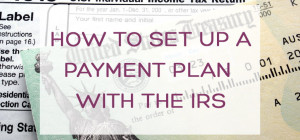 Not long ago the comedian known as Sinbad (a.k.a David Adkins) filed for bankruptcy. ABC News reports that Sinbad failed to pay state and federal taxes in the past and, as a result, was forced to seek bankruptcy protection. This will be Sinbad's second bankruptcy filing, the first one occurring in 2009. Sinbad claims that he owes $11 million, including $8.3 million to the IRS for taxes due over an eight year period. That total only accounts for taxes from 1998-2006, and the total could actually rise considering Sinbad failed to pay state or federal taxes since 2009.
Not long ago the comedian known as Sinbad (a.k.a David Adkins) filed for bankruptcy. ABC News reports that Sinbad failed to pay state and federal taxes in the past and, as a result, was forced to seek bankruptcy protection. This will be Sinbad's second bankruptcy filing, the first one occurring in 2009. Sinbad claims that he owes $11 million, including $8.3 million to the IRS for taxes due over an eight year period. That total only accounts for taxes from 1998-2006, and the total could actually rise considering Sinbad failed to pay state or federal taxes since 2009.
In assets Sinbad lists four cars, home office equipment, and several copies of his published book. Of money owed, he stated that he owes money to everyone "from the IRS to the CA Franchise Tax Board to American Express."
The well-known comedian's struggle with back-taxes is not unique. Many individuals are ultimately forced to seek bankruptcy as a result of money owed to local, state, and federal governments.
How Taxes and Bankruptcy Work
Bankruptcy attorneys are knowledgeable in determining how a bankruptcy may assist a person with income tax issues, though tailored tax advice is often necessary. To begin, one must look at what taxes, penalties, and interest a particular person owes and for which years they owe them. Next, one must consider whether the individual filed their tax returns timely, and whether that individual had been audited or been subject to additional assessment of taxes. The next step is determining whether there has been a tax lien filed, whether accounts have been levied, and if there had been any collection actions.
After reviewing that information an attorney will look to see whether any actions were taken in the past to settle, challenge or pay the taxes (such as an offer in compromise, previous bankruptcy etc.) Learning this information helps the attorney give you advice tailored directly to your situation, including whether the income taxes can be discharged in bankruptcy.
Typically taxes can be discharged in a Chapter 7 bankruptcy filing if the following conditions are met.
- Taxes are for a year where the return was due at least three years prior to the date of filing for bankruptcy
- The taxpayer filed the return at least two years prior to the date of filing for bankruptcy
- The taxes have been assessed by the IRS for at least 240 days prior to the filing of the bankruptcy case
Tax Lien
If the IRS has filed a proper tax lien, the taxes for any year covered by the lien are considered secured debts. In a Chapter 7 bankruptcy filing, personal liability for taxes can still be discharged. However the lien will continue to attach to any property and such the lien would survive the bankruptcy ensuring that the IRS could later collect from any property that existed at the time of the bankruptcy filing.
Chapter 13
Chapter 13 bankruptcies and taxes differ from that of Chapter 7 cases because any taxes that are non-dischargeable in Chapter 7 must be paid as part of the Chapter 13 plan. But only the tax amount itself and interest must be paid; any penalties will not be required to be paid.
Bankruptcy Attorney
Because tax issues as well as bankruptcy can be quite confusing, speaking with a bankruptcy lawyer is critical and may alleviate some of that stress.
Steve Williams is a legal blog writer for Hoffman, Larin and Agnetti PA, South Florida’s premier bankruptcy attorneys. At Hoffman, Larin and Agnetti PA we offer personal attention and make sure that you understand the precise nature of your case and the legal principles involved. If you are looking for a bankruptcy attorney in Key West, look no further than Hoffman, Larin and Agnetti PA.







